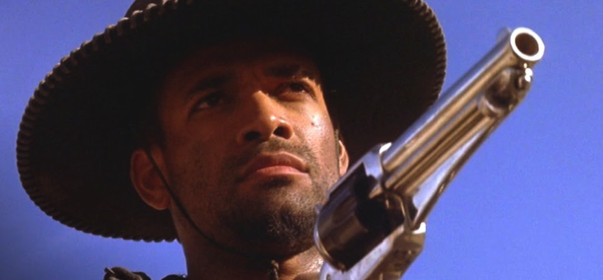
















































































Oral History as Political Resitance:
Posse and Once Upon a Time in Mexico
In his essay “Post-modernism and the Western,” Jim Kitses points to a
resurgence of films from the 1990's that have functioned to redefine the codes
of the traditional Western, bringing to life the postmodern Western. He
observes that films like Jim Jarmusch's Dead Man, in its de-stabilization of
civilized Western values, and Maggie Greenwald's The Ballad of Little Jo, with
its discourse of empowerment, are illustrations of a progressive genre whose
frontier is no longer defined by the iconic cowboy hero, but instead by a
plurality of racial, cultural, and gender-specific terms. Accompanying these
films in their break from the codes of traditional Western mythology are the
bold discourses of Mario Van Peebles's Posse and Robert Rodriguez's Once Upon
a Time in Mexico. As postmodern appropriations of one of cinema's oldest
genres, each film functions as a reactionary response to totalizing Western
narratives (embodied in films like Stagecoach and My Darling Clementine),
destroying dominant existing historical identities, and establishing a unique
cultural voice that is aimed specifically at members of their respective
oppressed groups. A link to the .pdf file can be found here.